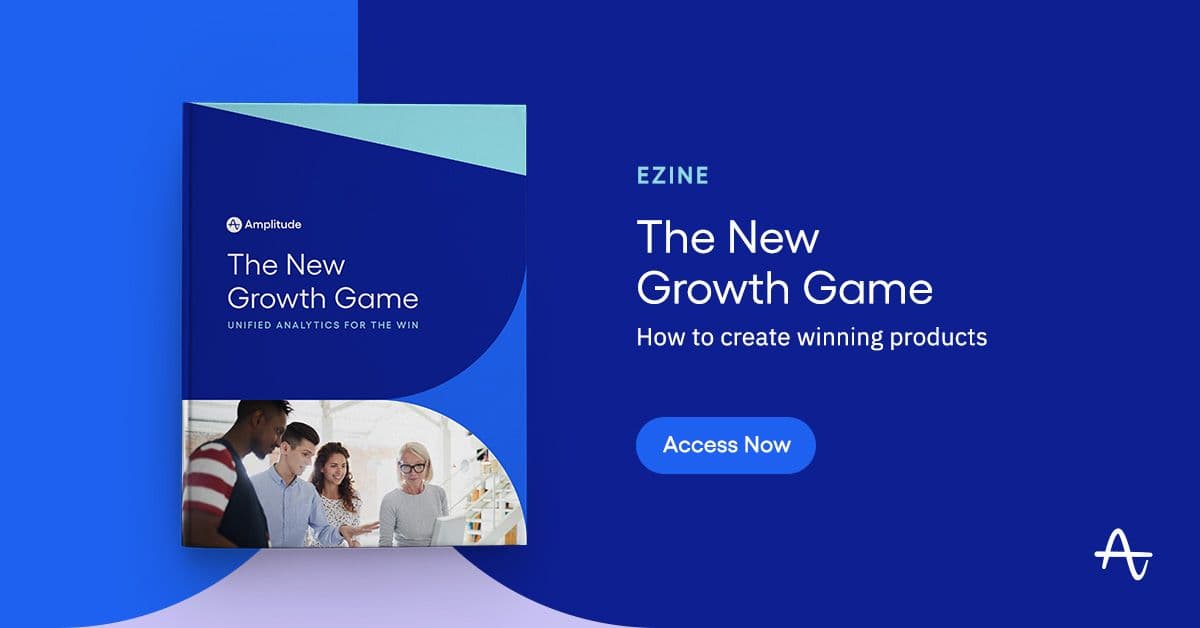What a Top VC Says About Driving Growth in this Downturn
Why Sequoia Capital’s Pat Grady says investing in product is the key to long-term business growth
Uncertainty is a word we’re hearing a lot right now. Some experts say we will face a deep recession, while others say we’ll have a minimal one. For many business leaders, it’s unclear if this present downturn will reverse course similar to the volatility of 2020, or if we’re heading towards an economic landscape more similar to 2009 or the dot-com crash of the early 2000s.
No one has a crystal ball. But regardless of what may happen, it’s clear that the current climate brings steep changes to the plans many organizations had set out to execute earlier this year. What is certain is that companies will now need to operate with less. Frivolous times are over.
This is something I know every CEO and investor is thinking about—not just the potential challenges, but the best way to strategically position your business for long-term growth with lean resources. It’s one of the reasons I feel so lucky to have Sequoia’s Pat Grady as an adviser, board member, and early Amplitude investor. He’s been with Sequoia for 15 years, and having seen tech slowdowns before, offered some great advice around building an enduring company at Amplify 2022 in May. Here are some of Pat’s recommendations for building sustainable growth in today’s market and beyond.
[Watch the full fireside chat with Pat Grady]
A down market is the time to build muscle
With rising interest rates and inflation increases, the cost of capital is higher. The financial models built based on yesterday’s assumptions likely will not produce the results you want tomorrow. While this is worrisome for many, Pat shared some tactical advice that leaders should keep in mind when seeking an efficient path to growth. In economies of abundance, companies tend to spend the extra dollar because they can reliably assume that there are more dollars on the way. This usually comes in the form of sales and marketing investments. But in the current market, companies must be much more deliberate about sales and marketing. Think of these investments as sugar, which creates fat. The problem is that the dollars you spend on sales and marketing do not compound over time. However, the dollars you spend on your product do. In this analogy, your product is your muscle. Companies should take this time to make forward-learning investments in product because it is what builds long-term durability and differentiation in your business.
Good examples of companies that invested in the long-term durability of their product are data cloud company Snowflake and collaborative design tool Figma. In Figma’s case, the team spent five years working on its product until it was ready for the market. Five years may sound like a long time. But companies’ desire to see results overnight often means rushing the product development process, which is something leaders cannot afford. By investing in your product, you are building an asset that yields future benefits. In today’s market, this is especially important. As CEOs and business leaders are tasked with proving ROI on all investments, your company needs full visibility into what drives engagement, loyalty, and retention with your product. Products like Amplitude can help you identify what’s working and what’s not so that you prioritize the investments that translate into financial outcomes for your business.
Product’s new roles: Revenue center and distribution channel
In the past, sales was the primary revenue driver for businesses. Then, everything went online, which meant marketing became the driver. But today, regardless of what is going on in the macroeconomic environment, your product is the reason you’ll succeed or fail. There’s nowhere for a bad product to hide. This also means that the best products sell themselves. With more and more potential customers trying out freemium versions of a product before deciding to buy, the product has become a key distribution channel for businesses. And when your product is your leading distribution channel, product-led growth (PLG) is the difference between a good company and a great one.
Another great example of a company that strategically leveraged its product as a core distribution channel is Zoom. A company we’re all familiar with, Zoom became an excellent example of PLG during the COVID-19 pandemic. What was a successful enterprise solution quickly became a popular consumer product through word-of-mouth and people’s own usage of the product to create connectedness during isolation. By understanding how these new users were leveraging their product, the team at Zoom was able to make some quick privacy and security setting updates to make their product both enterprise- and consumer-friendly.
Advice for building an enduring company
One of the last questions I asked Pat was something that I’ve heard a lot of thoughts and questions about, especially in recent months: How do you build an enduring company? He had two main recommendations: simplicity and clarity. But this can be harder than it sounds. People are impatient, and do not always want to accept the simple idea as “enough.” Commonly, founders want to go deeper and make solutions more complex. Pat encouraged the audience to keep things to the essentials, as simplicity scales better than complexity.
My conversation with Pat was one of my favorite moments from Amplify 2022, and his wisdom around driving growth in down markets is especially timely. While we will never be able to control macroeconomic trends, what we can control is how we respond. By resourcing efficiently and leveraging the right bets, leaders will be better prepared for whatever the future holds. And in a product-led future, being data-driven is the key to success.
Watch my fireside chat with Pat Grady and all the recorded Amplify sessions here. Learn more about how Amplitude can help your organization better translate product investments into financial objectives here.

Spenser Skates
CEO and Co-founder, Amplitude
Spenser is the CEO and Co-founder of Amplitude. He experienced the need for a better product analytics solution firsthand while developing Sonalight, a text-to-voice app. Out of that need, Spenser created Amplitude so that everyone can learn from user behavior to build better products.
More from Spenser





